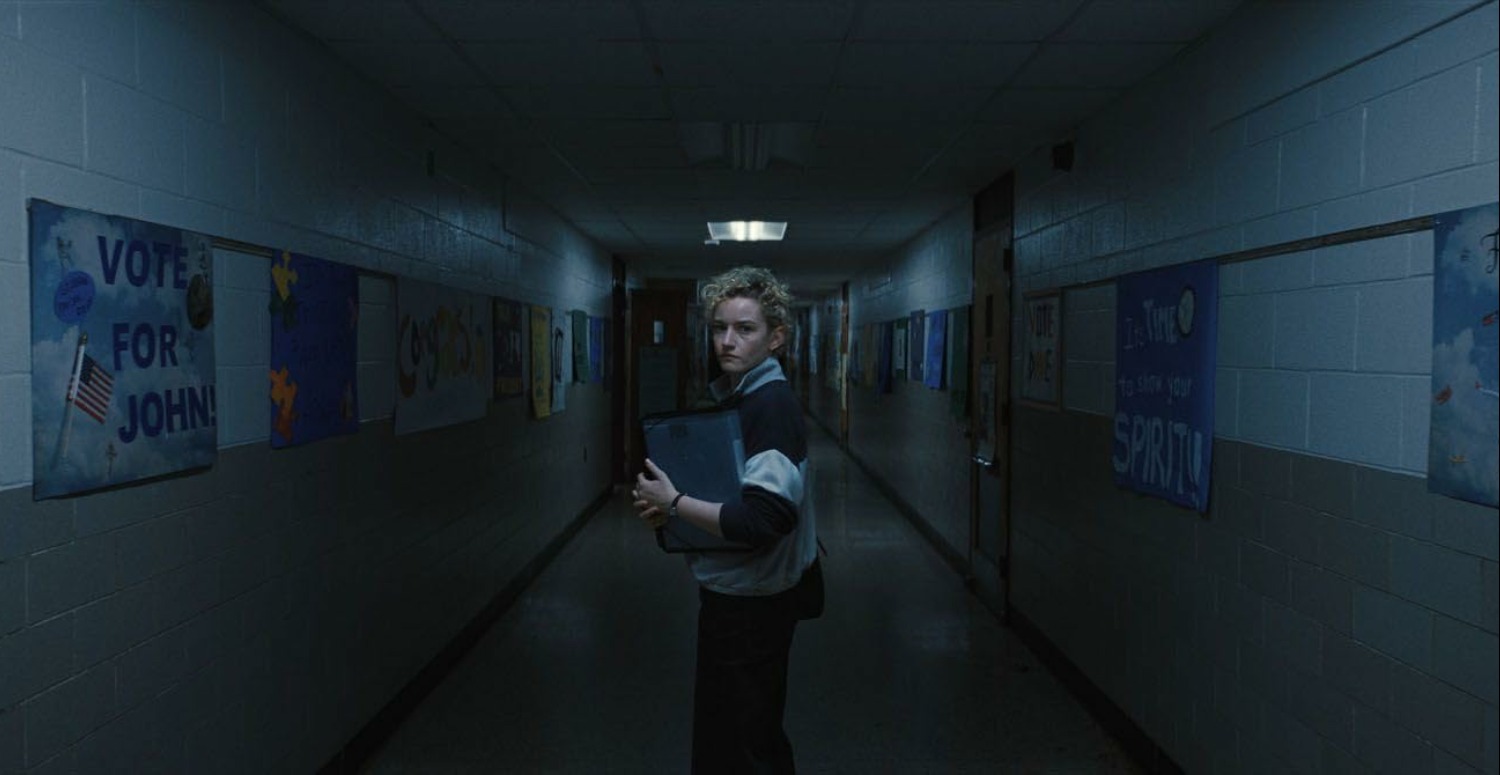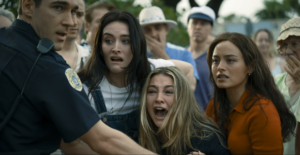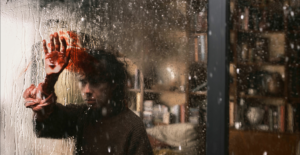Évanouis
Weapons
2025

FR EN
« Cette histoire est une histoire vraie qui s’est passée dans ma ville. Ce mercredi avait démarré comme une journée normale à l’école, mais ce n’était pas une journée normale. Dans toutes les classes, tous les enfants étaient là, mais la classe de Mme Gandy était complètement vide. Vous savez pourquoi ? Parce que dans la nuit, à 2H17 du matin, tous les enfants se sont réveillés, sont sortis de leur lit, ont descendu l’escalier, et ont disparu dans la nuit. Et ils ne sont jamais revenus. »
« Évanouis », c’est un thriller horrifique avec une jolie tête d’affiche, où des gens se mobilisent pour résoudre l’énigme de la disparition simultanée de 17 enfants. Il y a d’abord la maîtresse, Justine Gandy (Julia Garner), dont toute la classe s’est volatilisée, et qui est plus désemparée que jamais, en plus d’être prise pour cible par quasiment toute la ville. Il y a ensuite Paul (Alden Ehrenreich), un policier et ami de Justine, qui va se plonger malgré lui dans l’affaire. Il y a enfin Archer (Josh Brolin), père de l’un des enfants disparus, en quête de réponses. Mais il y a aussi d’autres victimes collatérales qui vont être mêlées à l’histoire…
Le film est construit comme un « rashōmon » : s’y embrayent en effet plusieurs points de vue sur une même enquête qui permettent de résoudre cette dernière. Et ce qui marche, c’est que les personnages qui se succèdent n’ont a priori pas grand-chose en commun hormis leur lien parfois très indirect avec les 17 disparitions. Les évènements prennent ainsi progressivement une tout autre tournure, avec une révélation et surtout une fin assez inattendues.
Bien que sa bande-annonce le présente comme un film d’horreur plutôt glaçant, « Évanouis » penche en réalité plus vers le thriller aux situations quelquefois assez cocasses voire comiques ou presque grotesques, de sorte que parfois l’on ne sait pas s’il faut trouver les scènes glauques, bizarres ou marrantes. Cette confusion de registre n’enlève cependant rien à l’originalité [poly]thématique (du deuil à la maladie en passant par l’obscurantisme) et narrative de ce film qui, à l’instar de son titre original, peut transformer certaines choses en armes…
Axel Chevalier
« This is a true story that happened in my town. So, this one Wednesday is like a normal day for the whole school but today was different. Every other class had all their kids but Mrs. Gandy’s room was totally empty. And do you know why? Because the night before, at 2:17 in the morning, every kid woke up, got out of bed, walked downstairs, and into the dark. And they never came back. »
“Weapons” is a horror thriller with a great cast, in which people come together to solve the mystery of the simultaneous disappearance of 17 children. First there’s the teacher, Justine Gandy (Julia Garner), whose entire class has vanished, leaving her more distraught than ever, as well as being targeted by almost the entire town. Then there’s Paul (Alden Ehrenreich), a police officer and friend of Justine’s, who finds himself unwittingly caught up in the case. Finally, there’s Archer (Josh Brolin), the father of one of the missing children, who is searching for answers. But there are also other collateral victims who will be involved in the story…
The film is built like a “rashōmon” with multiple points of view on the same investigation brought together, allowing it to be solved. What works is that the characters who appear one after the other don’t seem to have much in common, except for their sometimes very indirect connection to the 17 disappearances. The events thus gradually take a completely different turn, with unexpected revelations and, especially, a rather surprising ending.
Although the trailer promotes it as a rather chilling horror film, “Weapons” is in fact more of a thriller with situations that are sometimes quite comical or even grotesque, so that at times it is unclear whether the scenes are supposed to be creepy, bizarre, or funny. However, this blurring of genres does not detract from the originality of the film’s themes (ranging from grief to illness and obscurantism) and storytelling, which, like its title suggests, can turn certain things into weapons…
Axel Chevalier

